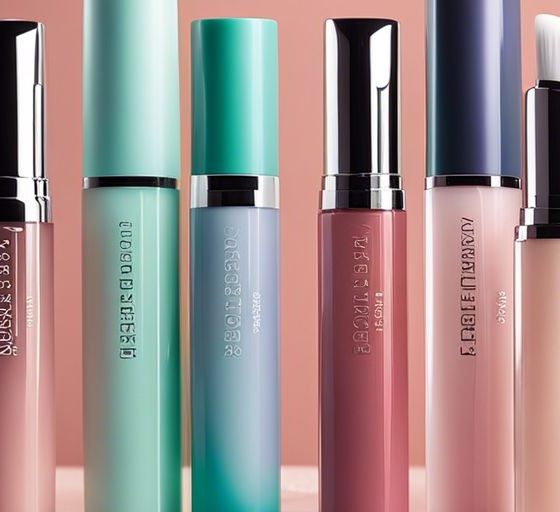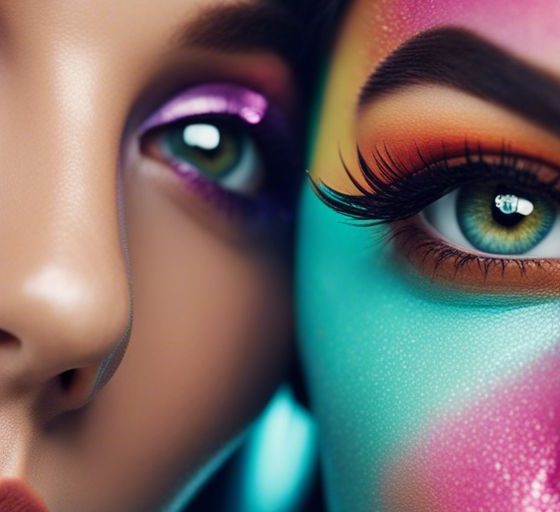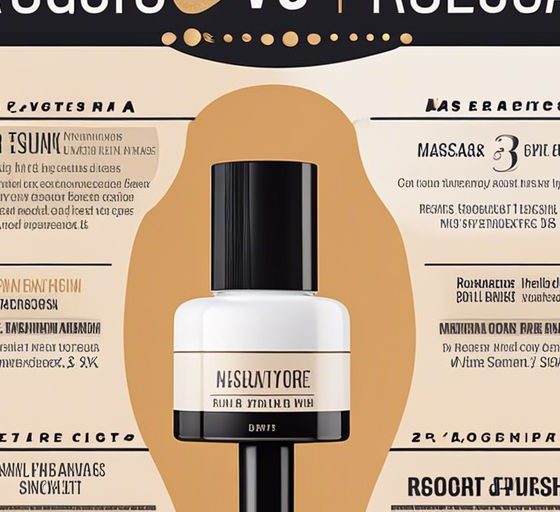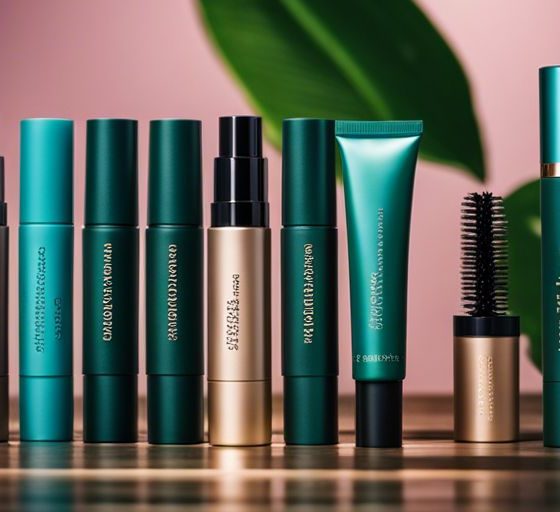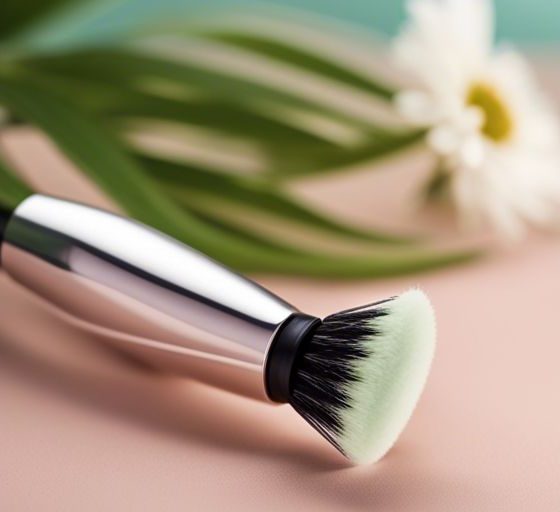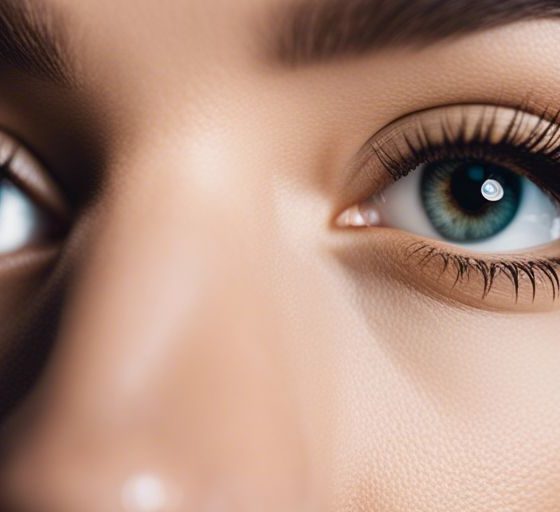With aging being a natural process that affects everyone, finding effective ways to combat its visible signs is crucial. One powerful weapon in the anti-aging skincare arsenal is retinol, a derivative of vitamin A that is hailed for its remarkable benefits.
Retinol has been proven to effectively reduce the appearance of wrinkles, fine lines, and age spots, while also improving skin texture and firmness. Incorporating this potent ingredient into your skincare routine can truly transform the overall look and feel of your skin, helping you achieve a more youthful and radiant complexion.

The Science of Retinol: Its Effects on the Skin
With a myriad of skincare products available on the market, it can be challenging to navigate what truly works for skin rejuvenation. Retinol, a form of Vitamin A, has long been touted as a powerhouse ingredient in anti-aging skincare. Retinol works by influencing skin cell behavior at a molecular level, promoting collagen production, increasing skin cell turnover, and aiding in the reduction of wrinkles and fine lines.
Retinol and Skin Cell Renewal: A Detailed Look
Detailed studies have shown that retinol not only boosts collagen production but also helps accelerate the rate at which skin cells are shed and replaced. This process, known as cell turnover, is vital for maintaining youthful, radiant skin. As we age, this natural turnover process slows down, resulting in dullness and the appearance of wrinkles. By incorporating retinol into your skincare routine, you can effectively speed up this process and reveal fresher, more youthful-looking skin.
Cell turnover is crucial for maintaining healthy skin as it rids the skin of old, damaged cells, allowing new, healthy cells to surface. This process not only promotes a more radiant complexion but also helps prevent clogged pores, acne breakouts, and uneven skin tone. By incorporating retinol into your anti-aging regimen, you are investing in a powerful tool that promotes skin renewal and overall skin health.

The Anti-Aging Benefits of Retinol
Reduction of Fine Lines and Wrinkles
Wrinkles are a natural part of the aging process, but that doesn’t mean we have to live with them. The use of retinol in skincare has been proven to be effective in reducing the appearance of fine lines and wrinkles. Retinol works by increasing cell turnover, stimulating collagen production, and improving skin elasticity. This powerful ingredient can help smooth out wrinkles and give the skin a more youthful appearance.
Improved Skin Texture and Tone
On top of reducing fine lines and wrinkles, retinol also enhances skin texture and tone. It helps to unclog pores, fade acne scars, and even out skin discoloration. This results in a smoother, more even complexion. With regular use, skin texture becomes more refined, and tone becomes more even.
It is important to note that retinol can make the skin more sensitive to the sun, so it is vital to use sunscreen daily to protect the skin from harmful UV rays.
Diminishing Age Spots and Hyperpigmentation
Improved skin texture is not the only benefit of retinol. This potent ingredient is also highly effective in diminishing age spots and hyperpigmentation. Retinol works by increasing cell turnover and promoting the shedding of pigmented skin cells, leading to a more even skin tone. Over time, dark spots fade, and hyperpigmentation becomes less noticeable.
Texture may initially feel dry or flaky when first using retinol, but this is a common side effect as the skin adjusts to the ingredient. It is important to use a moisturizer to help combat any dryness and maintain skin hydration.
Promoting Collagen Production for Firmer Skin
Reduction in collagen production is a major contributor to sagging skin and fine lines. Luckily, retinol can help stimulate collagen production in the skin, leading to firmer and more youthful-looking skin. By boosting collagen levels, retinol helps improve skin elasticity and firmness, resulting in a more lifted appearance.

Incorporating Retinol into Your Skincare Routine
Choosing the Right Retinol Product for Your Skin Type
All skincare products containing retinol are not created equal, and it is important to choose the right one based on your skin type. If you have sensitive skin, opt for a milder form of retinol to avoid irritation. Conversely, if you have oily or acne-prone skin, you may benefit from a stronger concentration of retinol to combat breakouts effectively. Consulting with a dermatologist can help you determine the best retinol product for your specific skin concerns.
How to Apply Retinol Properly for Maximum Efficacy
Your skin will only reap the full benefits of retinol if it is applied correctly. Start by cleansing your face thoroughly and patting it dry. Then, take a pea-sized amount of retinol and gently massage it onto your skin, focusing on areas with fine lines or wrinkles. Allow the product to absorb fully before applying your moisturizer. It is crucial to use retinol at night and always follow up with a broad-spectrum sunscreen the next day to protect your skin from UV damage.
Retinol Usage: Frequency and Time of Day
Incorporating retinol into your skincare routine requires careful consideration of frequency and timing. Initially, start by using retinol two to three times a week to allow your skin to adjust gradually. Overuse of retinol can lead to irritation and redness, so it’s crucial to listen to your skin’s needs. Additionally, it is recommended to apply retinol at night as it can make your skin more sensitive to sunlight. This timing allows the product to work its magic while you sleep, promoting cell turnover and collagen production.
Addressing Common Concerns and Side Effects
Your journey to youthful skin through retinol may come with a few bumps along the way. However, knowing how to address and manage potential irritation can make all the difference in achieving glowing results without the drawbacks.
Avoiding and Managing Potential Irritation
Addressing potential irritation with retinol involves a gradual introduction of the ingredient into your skincare routine. Start by applying a pea-sized amount every other night to allow your skin to adapt. If irritation persists, consider buffering your retinol with a moisturizer to mitigate sensitivity. It’s also crucial to use sunscreen during the day as retinol can increase sun sensitivity, leading to further irritation if not adequately protected.
Retinol Sensitivity: Precautions and Adaptations
Concerns about retinol sensitivity may arise, especially for individuals with dry or sensitive skin. Precautions such as starting with a lower concentration and gradually increasing frequency can help minimize adverse reactions. Additionally, incorporating hydrating products into your routine can help counteract the potential dryness that may accompany retinol use.
It is necessary to consult with a skincare professional or dermatologist if you experience persistent irritation or discomfort when using retinol. They can provide tailored advice and recommend suitable products to address your concerns.
Combining Retinol with Other Skincare Ingredients
Irritation may also stem from combining retinol with other potent skincare ingredients. When integrating retinol into your regimen, avoid using products like benzoyl peroxide or alpha hydroxy acids simultaneously to prevent excessive dryness and irritation. Opt for gentle cleansers and soothing moisturizers to complement your retinol routine and maintain skin barrier integrity.
The Long-term Use of Retinol
Despite the initial excitement of incorporating retinol into your skincare routine, it’s imperative to consider the long-term benefits of this powerful ingredient. Consistent use of retinol can yield remarkable results in the quest for youthful skin. It stimulates collagen production, reduces the appearance of fine lines and wrinkles, fades dark spots, and improves overall skin texture.
When to Expect Visible Results from Retinol
The effectiveness of retinol can vary from person to person, but generally, visible results can be expected within 12 weeks of consistent use. During this time, you may notice smoother skin texture, diminished fine lines, and a more even skin tone. It’s crucial to be patient and give the retinol enough time to work its magic, as the benefits will continue to accumulate with prolonged use.
Can Retinol Lose Its Effectiveness Over Time?
Any concerns about retinol losing its effectiveness over time are valid, as the skin can sometimes develop a tolerance to this potent ingredient. However, this doesn’t mean that retinol has become ineffective altogether. Adjusting the concentration or incorporating other active ingredients into your skincare routine can help combat any diminishing effects of retinol and ensure that your skin continues to reap the benefits.
Advanced Retinol Formulations and Technologies
- The Evolution of Retinol: Encapsulation and Stabilized Formulas
To keep up with the demand for more effective and stable retinol formulations, skincare companies have invested heavily in research and development. Encapsulation technology has been a game-changer in the world of retinol. By encapsulating retinol in a protective shell, it can be delivered more efficiently into the skin without losing its potency. This technology also helps to minimize potential irritation, making it suitable for sensitive skin types.
Stabilized formulas have also revolutionized the way retinol is used in skincare products. By combining retinol with other stabilizing ingredients, companies have been able to create products that are more potent and less likely to degrade over time. This means that consumers can enjoy the benefits of retinol without worrying about its effectiveness diminishing.
- Prescription vs. Over-the-Counter Retinol: Which Is Right for You?
Regarding choosing between prescription-strength retinol and over-the-counter options, it ultimately depends on your skincare goals and needs. Prescription retinoids are typically more potent and may deliver quicker results, making them suitable for individuals with severe skin concerns such as deep wrinkles or stubborn hyperpigmentation. However, they also come with a higher risk of irritation and may require closer monitoring by a dermatologist.
Over-the-counter retinol products, on the other hand, are more accessible and convenient for the average consumer. While they may take longer to show results compared to prescription-strength options, they are generally milder and may be better suited for those with sensitive skin. It’s necessary to start with a lower concentration and gradually build up tolerance to minimize the risk of irritation.
Evolution: With advancements in retinol formulations and technologies, consumers now have a wide range of options to choose from when incorporating retinol into their skincare routine. Whether you opt for a prescription or over-the-counter product, the key is to find the right balance between effectiveness and tolerability for your skin type and concerns.
To wrap up
Considering all points discussed, using retinol in your anti-aging skincare regimen can provide numerous benefits for your skin. Retinol is a powerhouse ingredient that helps stimulate collagen production, improve skin texture, and reduce the appearance of fine lines and wrinkles. It also aids in increasing cell turnover and promoting a smoother, more youthful complexion.
By incorporating retinol into your skincare routine, you can effectively combat the signs of aging and achieve a more youthful appearance. However, it is important to start with a lower concentration and gradually build up tolerance to prevent any potential irritation. Consult with a dermatologist to find the right retinol product and formulation that works best for your skin type and concerns. Overall, the benefits of using retinol in your anti-aging skincare are well-supported by scientific research and countless positive testimonials from skincare enthusiasts worldwide.
FAQ
Q: What is Retinol?
A: Retinol is a derivative of vitamin A that is commonly used in skincare products for its anti-aging benefits. It helps to improve skin texture, promote collagen production, and reduce the appearance of wrinkles and fine lines.
Q: How does Retinol benefit anti-aging skincare?
A: Retinol is known for its ability to accelerate skin cell turnover, which helps to improve the overall texture and tone of the skin. It also stimulates collagen production, which can help to reduce the appearance of wrinkles and fine lines.
Q: Is Retinol suitable for all skin types?
A: Retinol can be beneficial for most skin types, but it may cause irritation for those with sensitive skin. It is important to start with a lower concentration and gradually increase usage to allow your skin to acclimate to the product.
Q: When is the best time to use Retinol in your skincare routine?
A: Retinol is best used at night because it can make your skin more sensitive to sunlight. It should be applied after cleansing and toning, but before moisturizing. Always remember to use sunscreen during the day when using retinol.
Q: How long does it take to see results from using Retinol?
A: Results from using retinol can vary from person to person, but most people start to see improvements in their skin within a few weeks to a few months of consistent use. It is important to be patient and consistent with your retinol routine to see the best results.




